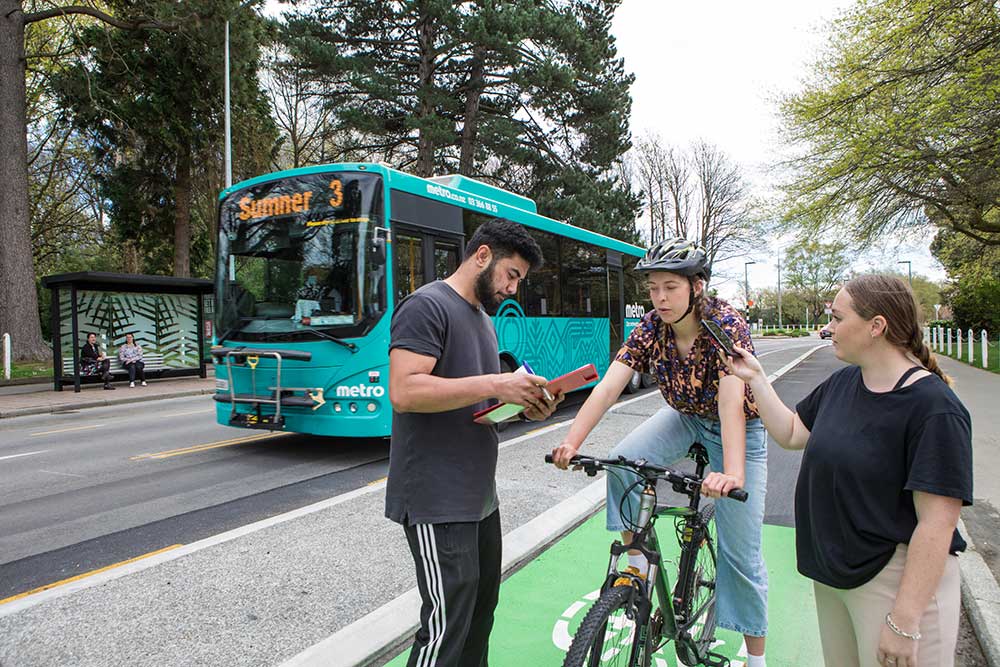Transportation Engineering
Introduction
Transportation engineering covers all aspects of transportation related issues, from determining the future transportation needs of a community or country through to the performance of the materials that are used to construct roads. All modes of travel are covered, from pedestrians/cyclists to cars/trucks to buses/trains to ships and planes (although our programmes at Canterbury largely deal with land transport).
Te Tari Pūhanga Metarahi, Rawa Taiao | Department of Civil and Natural Resources Engineering collaborates with the Department of Civil and Environmental Engineering at Te Whare Wānanga o Tāmaki Makaurau | University of Auckland to offer postgraduate qualifications in Transportation Engineering.
The programme was established in consultation with the land transport industry and the engineering profession to meet the demand for graduates with advanced skills in Transportation Engineering. Financial assistance has been provided by Waka Kotahi | New Zealand Transport Agency and Community Road Safety Fund.

